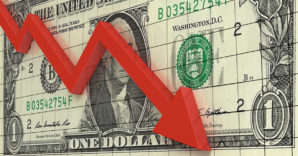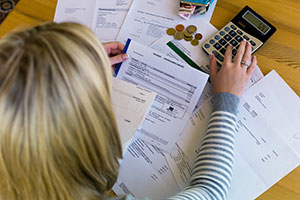US Credit Card Debt Hits All-Time High – What Does That Mean For You?
Credit card debt in the United States hit a record high at the end of 2022, topping out at almost $1 trillion for the first time ever. During the last quarter of the year, delinquencies were growing at a faster and faster rate. The Federal Reserve Bank of New York released data that showed overall balances growing by $61 billion over the last three months of 2022 – with a grand total of $986 billion for Q4. This was the largest increase over a single quarter since the bank started tracking changes in 1999. (more…)


 We have helped many hundreds of Dallas-area residents with their bankruptcy cases over the years, and the most common question we hear first is “Should I file bankruptcy?”
We have helped many hundreds of Dallas-area residents with their bankruptcy cases over the years, and the most common question we hear first is “Should I file bankruptcy?” The Great Recession hit America hard from December of 2007 to the middle of 2009, millions of US residents lost their livelihoods and homes. It was the worst economic downturn since the 1930s and the Great Depression, and it took almost a decade for the labor market to fully recover.
The Great Recession hit America hard from December of 2007 to the middle of 2009, millions of US residents lost their livelihoods and homes. It was the worst economic downturn since the 1930s and the Great Depression, and it took almost a decade for the labor market to fully recover. We can talk all day long about our experience helping local Dallas residents get a fresh start through bankruptcy, but sometimes our clients say it better than we do.
We can talk all day long about our experience helping local Dallas residents get a fresh start through bankruptcy, but sometimes our clients say it better than we do. While most of our potential clients ask about what’s involved in a bankruptcy case, and what they need to do when they are filing, many forget to ask what NOT to do… And the things you shouldn’t do before filing are just as important as what comes afterward.
While most of our potential clients ask about what’s involved in a bankruptcy case, and what they need to do when they are filing, many forget to ask what NOT to do… And the things you shouldn’t do before filing are just as important as what comes afterward.
 It is Halloween this weekend, so we had to share something scary here on the blog… and this time, we are sharing 4 Scary Ways to Damage Your Debt. Let’s face it – nothing is scarier than overwhelming debt that spirals out of control.
It is Halloween this weekend, so we had to share something scary here on the blog… and this time, we are sharing 4 Scary Ways to Damage Your Debt. Let’s face it – nothing is scarier than overwhelming debt that spirals out of control. The proliferation of credit cards and the “gotta have it now” American lifestyle have lead to a problem: for many Americans, living with debt is par for the course. The changes in America’s financial landscape due to COVID and resulting lockdowns have only made things worse. In many cases, debt spirals out of control until filing for bankruptcy appears to be the only way out.
The proliferation of credit cards and the “gotta have it now” American lifestyle have lead to a problem: for many Americans, living with debt is par for the course. The changes in America’s financial landscape due to COVID and resulting lockdowns have only made things worse. In many cases, debt spirals out of control until filing for bankruptcy appears to be the only way out. One of the most frustrating things about bankruptcy is that it is so misunderstood. You do not really care much about it until you are in a dire situation and need it – and then there is so much myth and misinformation, it becomes an incredibly daunting task to decide how you will proceed.
One of the most frustrating things about bankruptcy is that it is so misunderstood. You do not really care much about it until you are in a dire situation and need it – and then there is so much myth and misinformation, it becomes an incredibly daunting task to decide how you will proceed.